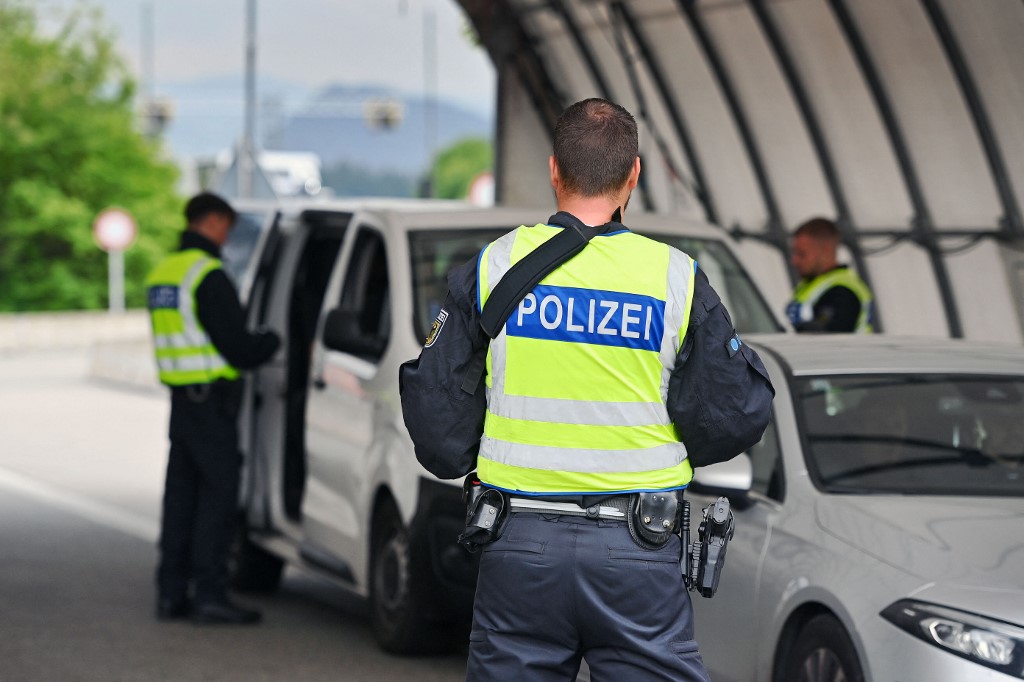
Germany Tightens Rules, Rejects Asylum-Seekers at the Border
In the two days since Germany's new government introduced stricter border controls, 19 asylum-seekers were turned away at the German border.
Germany has begun rejecting individuals applying for asylum at its borders shared with other European countries. According to Bild am Sonntag, a total of 365 illegal immigrants arrived at all borders on Thursday and Friday, and of these, 286 migrants and refugees were turned back, including 19 asylum-seekers.
The main reasons for rejection were: invalid visas, forged documents, or entry bans.
Bild also reported that within those two days, 14 human traffickers were arrested, 48 warrants were executed, and nine individuals were detained under anti-extremist laws targeting far-left, far-right and Islamist ideologies. Four applicants deemed „vulnerable” were allowed to enter the country.
Germany’s new Chancellor, Friedrich Merz, promised on his first day in office to implement checks along all nine of Germany’s land borders to stop illegal immigration. Merz justified the move by saying that Germany is surrounded by safe EU countries, where migrants should apply for asylum upon their initial arrival in Europe.
Interior Minister Alexander Dobrindt announced that under certain conditions, asylum-seekers would be turned away at the border. Exceptions include children, pregnant women and others deemed vulnerable.
German media report that around 3,000 federal police officers will be deployed to help implement the measures.
The number of asylum applications in Germany has been decreasing lately. According to Welt am Sonntag, 37,387 applications were submitted in the first three months of the year—a 46% decrease compared to the same period last year.
Public Support for the Measure
The latest opinion polls show that around two-thirds of Germans support permanent border checks.
After the border checks introduced during the COVID-19 pandemic, Germany reinstated temporary border controls in September. These allow border guards to reject individuals lacking proper documentation for entry. According to Bild, from then until the end of April, 33,406 people were turned back at land borders. Most tried to enter illegally, and more than 1,200 had already been deported before. The figures also include human traffickers, extremists, and thousands of wanted persons, DW reported.
Germany’s Left-wing Party Plans Lawsuit
The rejection policy has been criticized by German politicians and neighboring EU countries, especially Poland, citing border traffic congestion and disruption to the EU’s internal market.
Marcel Emmerich, domestic policy spokesman for the environmentally conscious Green Party, said in Parliament that the move “violates European law.”
„Instead of opting for more cooperation, the federal government has chosen isolation and unilateral action, creating chaos at the borders,”
Emmerich, whose party is currently in opposition, told the Redaktionsnetzwerk Deutschland (RND) news agency.
Meanwhile, Markus Soder, leader of the CSU, believes the measure will gain support from Brussels.
“Germany is in a special situation,”
Soder told Bild am Sonntag, adding that Germany has accepted many migrants, even though European law does not obligate it to do so. He emphasized that “years of disorder” have plagued Europe’s migration system.
German Police are carrying out more intensive checks at the country’s borders following orders from the new interior minister. People inside and outside Germany have objected to the changes. pic.twitter.com/vkq9XvFwfW
— DW Politics (@dw_politics) May 13, 2025

